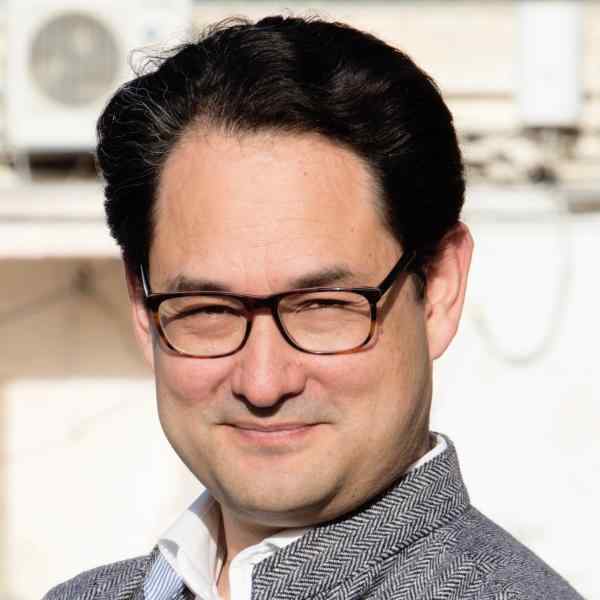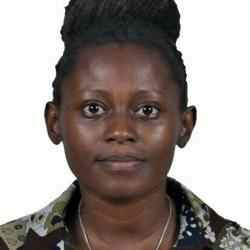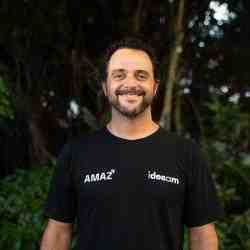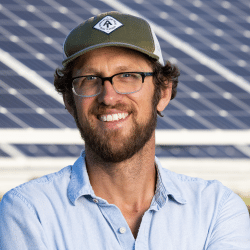Introdução
An estimated 25% of aid and government projects’ value is lost to fraud, corruption and mismanagement in developing and war-torn countries. Fredrik Galtung is re-defining anti-corruption work from top-down finger pointing to bottom-up promotion of integrity at the community level. Questioning the assumption that corruption can be tackled through punishment, he founded Integrity Action (IA) in 2003 with the primary objective of fixing problems through collaboration rather than trying to curb corruption by catching individuals or changing systems of governance by imitating the institutions of a few successful reformers.
A nova ideia
Fredrik is introducing the concept of user-led and initiated feedback to public institutions and the development sector. By closing the loop between funders, service providers and beneficiaries, Fredrik is incentivizing transparency and cooperation. To prove his theory of change in practice, Fredrik has developed a methodology called Community Integrity Building (CIB), which empowers communities to build alliances of local stakeholders who work eye to eye to solve specific integrity challenges. IA works through local partner NGOs, who actively engage community members to find out what concerns people the most and where services can be improved. Community members are then trained as Community Integrity Monitors who gather evidence and form Joint Working Groups – teams composed of public sector authorities, contractors and citizens. These teams identify solutions to promote integrity in the management, allocation and delivery of public resources such as health, education, water, sanitation and social protection services. Without directly investing any money in bricks and mortar, Fredrik is helping communities to build schools, gain access to clean water and receive social care.
To date, IA has trained over 3,000 Community Integrity Monitors in 12 countries including Afghanistan, Kyrgyzstan, Côte d’Ivoire, Palestine, Liberia and Sierra Leone. In total, during one year, they worked with communities to monitor 159 projects worth over USD 147 million, benefitting more than 2.1 million people.
Fredrik has invented two practical tools to ensure that his methodology is feasible in practice, and measurable in its impact. First, an open online data platform called ‘DevelopmentCheck’, which allows local monitors to collect and share information and evidence (e.g. copies of contracts, on site photo documentation etc.). Second, an impact measurement tool called the ‘Fix-Rate’, which measures the incidence with which corruption issues are resolved to the satisfaction of all key stakeholders. Unlike traditional indexes, which put a spotlight on corruption, the Fix-Rate is a unit of measurement capturing positive transparency and accountability work. To seed a new mind-set of integrity, Fredrik has also established the world’s largest Integrity Education Network with over four hundred academic institutions, empowering faculties and staff to teach experiential integrity courses, and get future leaders to practice integrity from early on.
Fredrik’s ultimate aim is to transform the public and development sector and to introduce a culture of integrity. Fredrik’s strategy to reach this aim is threefold: First, empowering communities to deliver locally-driven responses to concrete challenges to prove that integrity can compete with corruption; Second, starting a global integrity education movement to train future generations of leaders to act with and demand integrity; Third, making user-led feedback best practice to fundamentally change the way aid is delivered and received.
O problema
Aid and government projects in developing countries are estimated to lose on average between 10% and 25% of the value of a project to fraud, corruption and mismanagement. In 2002 the African Union estimated that 25% of Africa’s GDP was lost to corruption every year. Reducing corruption by even 5% and diverting those funds into development would represent the biggest increase in aid (a 40% rise) that the world has seen in decades.
One third of all aid goes to fragile and conflict-affected states, where 33% of the world’s poorest live. These are also countries where the opportunities for corruption are particularly high. In the absence of strong institutions, effective law enforcement, large social cohesion and widespread trust and legitimacy among stakeholders, large inflows of public money increase the opportunities for the misuse of public funds. In Afghanistan for instance, officials cannot account for one third of aid between 2002 and 2009 (£23 billion). The construction and infrastructure sector is particularly exposed to corruption issues due to the large amount of international and national funds it receives and the high number of contractors it involves at every stage. The diversion of public funds is therefore creating substandard services for citizens and leaving communities in poverty, insecurity and inequality despite vast sums of money entering the system. The consequences of corruption in these countries have to measured beyond the opportunity cost of wasted resources. Although it should be evident that many more kilometers of road, more clinics, dispensaries and schools could have been built and sustained with lower corruption that is not the only cost. In the medium-term governments that fail to deliver development and that are marred by widespread corruption perpetuate instability and fragility. These are ultimately the countries most at risk of reverting to war and violent conflict. The cost of failure therefore goes well beyond wasted resources: it can unfortunately also be measured in wars, failed states, and the toll on human lives, dispossession and emigration that this entails.
A global anti-corruption movement was born in the early 1990s. In 1995 Transparency International pioneered the Corruption Perception Index (CPI), now widely used as the main indicator for measuring corruption globally. Fredrik was Transparency International’s first employee and its Head of Research for its first decade. Awareness raising campaigns and successful judicial actions promoted the mainstreaming of anti-corruption approaches in development. Global financial institutions started promoting multilateral discussions to stop the leakage of public resources and make governments accountable through “good governance” initiatives, whistle-blower hotlines and compliance training.
However, while awareness was successfully raised on a global level, current approaches are neither scalable nor repeatable. Pronouncing corruption charges against one or even a handful of public servants does not help the intended beneficiaries to receive aid or services. Furthermore, there has been a lack in communication between funders, contractors and beneficiaries. Without closing the loop, even well-intended development projects can fail without anyone in a position to report that failure back to the initial commissioner. Beneficiaries, like consumers, should be entitled to report back on the services they receive. As long as feedback is not user-led the impact and relevance of development initiatives can hardly be assessed.
A estratégia
Fredrik leads an evolution within the anti-corruption sphere, shifting towards pro-integrity initiatives that emphasize the regular citizen on the ground as an agent of demonstrable change. Ultimately, his goal is to build a culture of integrity from the bottom up, with citizens and beneficiaries actively and transparently holding the state and aid agencies to account.
The first strand of Fredrik’s strategy lies in empowering local communities to experience positive change by tackling corruption issues themselves through collaborative partnerships, local problem solving, and capacity building. Since 2006, Fredrik has developed a methodology called Community Integrity Building (CIB), which allows for citizens to take on and solve local integrity issues. In this model, IA funds carefully selected, credible local NGOs to crowdsource local needs and map relevant stakeholders on all sides. Once a priority is defined, NGO staff, trained by IA, identify and train local Community Integrity Monitors to source information and gather evidence. Based on that, they raise public awareness around problems such as unfinished or poor quality roads, school buildings that are misused for other purposes, or wells that break down after official inspection. To ensure information is accurate and publicly available Fredrik has developed an award-winning online tool called DevelopmentCheck, which allows monitors to upload, store and share all data after being verified by a Quality Assurance Committee. Community Monitors then form Joint Working Groups – teams of local authorities, contractors and beneficiaries. These teams together identify creative solutions drawing in experts and applying balanced pressure backed by evidence and demand from the community. For example, when farmers in Jericho were struggling to water their crops, as water was channeled to tourist hotels, the community formed a Joint Working Group. After organizing several public hearings as well as meetings with the mayor, the authorities came on board and corrected the official water-supply system. Joint Working Groups communicate a consistent message that their primary objective is to fix a problem, not to bring people to justice.
To measure the effectiveness of integrity work, Fredrik has introduced a new impact measurement tool called the Fix-Rate. In line with his underlying principle to highlight integrity and fixes, rather than corruption and failure, the Fix-Rate is a unit that measures the incidence with which problems are resolved to the satisfaction of key stakeholders. Fixing 2 out of 4 defined corruption issues translates into a Fix-Rate of 50%. While the Fix-Rate is usually as low as 0-5% when IA starts working in a community, they succeed in bringing it up to an average of more than 50% through the CIB approach within 12 to 18 months. As an illustration, one of IA’s main partners in Palestine, the Teacher Creativity Centre, had a Fix-Rate of 0% three years ago; in 2014 they passed 30%; and in 2015 they are achieving a Fix-Rate of more than 70%.
To date, IA has indirectly trained over 3,000 Community Monitors in 12 countries who together have created solutions from making streets accessible and safe, ensuring drinking water is accessible and clean, educating the elderly and disabled about their entitlement to social care, to sorting our rubbish collection in urban and rural areas. Their work can be shown to have benefitted over 4 million people through improved services and infrastructure. By designing DevelopmentCheck as an open online tool, training NGOs to spin off and apply CIB independently, as well as leaving citizens empowered with the tools, knowledge and confidence needed to tackle local corruption issues themselves, Fredrik is hoping to reach 50 million beneficiaries by 2020.
The second strand of Fredrik’s work lies in educating future leaders to act with and demand integrity. IA strategically partners with institutions in more than 30 countries - from China to Russia to Palestine - that spread and share learnings, and support teachers to develop and deliver locally contextualized integrity education. Depending on cultural context, Fredrik targets younger school children or university students, boys and girls, professionals or academics, always considering which members of society are most likely to become integrity champions.
In Palestine, for example, Fredrik identified youth as the most powerful stakeholders, as any extracurricular activity students take on influences final grades, which are published nationally and receive strong public attention. In Hungary, IA trained trainers who have eventually delivered integrity-based training to 8,000 civil servants from the Ministry of Justice and Public Administration drawing extensively on IA’s approach. The same has been done in Nepal, where integrity modules were made a requirement for the first time for entry level civil servants as well as senior officials seeking promotion to the highest grades.
Depending on the political situation IA works at the forefront or in the background, as for example in Afghanistan, where the involvement of an international NGO would have a negative effect on credibility. The vision for Integrity Education is to create a cultural shift which translates from classrooms to broader, future society. To date, IA has trained 1,066 scholars and 285 trainers who have trained over 25,000 students in integrity work and equipped them with the knowledge and confidence to act with integrity in their future careers. To allow for further spread, Fredrik has launched a global library of documents, curricula, case studies and literature on corruption and integrity in 6 languages.
The third and overarching strand of Fredrik’s strategy is to transform the public infrastructure and development sector by closing the loop between funders and beneficiaries. Empowering citizens as changemakers who solve corruption issues themselves, scaling democratic tools such as DevelopmentCheck and confronting aid agencies and governments with the intended and unintended consequence of their work, introduces the principle of user-led feedback to the sector. When, for example, a major UN agency commissioned the building of 200 schools in Afghanistan, but for security reasons only inspected 2% of those, only a fraction of the children intended to benefit from education actually did. Local monitoring found that over 30% of the schools were unusable and even dangerous because of the poor quality of materials and construction. The UN agency refused to provide monitors with the contracts that would have made monitoring easier. But Integrity Watch Afghanistan, which supported the monitors, was able to find template contracts with the specifications for the buildings. They were ultimately able to get more than 70% fixed by the contractors. By putting the power into the hands of citizens, Fredrik aims to create for the development sector what TripAdvisor is for the travel industry: crowdsourced, direct and uncensored feedback from beneficiaries to funders. Ultimately, Fredrik aims to make user-led feedback not only best practices but standard for any aid agency or government delivering services on the ground. Fredrik receives grants from corporates including Siemens and Google and international organisations such as the World Bank, DFID, and NORAD. Most recently he received the confirmation for multiyear institutional support from the Swedish government.
A pessoa
Fredrik grew up in 10 different countries, constantly moving with his parents who were academics. His father in particular was a leading academic in developing the discipline of peace and conflict studies, and Fredrik was exposed to global social and political issues from a very young age. Fredrik also quickly learned to be independent and adapt to new settings. He was always driven by curiosity and travelled alone for the first time when he was 12 – which was not technically legal.
Fredrik has a track record of turning things on their head. He was passionate about children’s rights and set up his first NGO when moved to Berlin after his studies. He started to work on this NGO before he turned 18. His vision was to establish an organization promoting children’s ‘right to work’ in order to empower them while protecting them at the same time. Already back then, Fredrik felt the need to challenge the system and did not hesitate to step up in a very controversial field. His organization did not take off, but led him to meet Peter Eigen, the founder of Transparency International, who had just started the organization.
Fredrik became the first employee of Transparency International in 1993. What he expected to be a temporary position became a passion and a life-commitment. At that time, anti-corruption was not an established field of work or in any way on the global agenda. Rather, corruption was a huge, largely taboo issue, which nobody dared to touch - which is precisely what attracted Fredrik. He worked as the Head of Research at TI for about a decade and became a world known expert on corruption metrics and measurements. Among other things, he co-created the Corruption Perceptions Index, and then went on to develop the Bribe Payers Index and the Global Corruption Barometer, all of which quickly became powerful ways to raise awareness and debate. Working with dozens of governments, organisations, universities and corporations, Fredrik hugely contributed to bringing the issue of corruption on the global agenda.
However, Fredrik gradually started to have reservations about whether the methods he had helped to create would actually provide solutions to corruption on the ground in the long term. Fredrik and his colleague Jeremy Pope, TI’s first managing director, had an urge to find concrete solutions, and more directly empower citizens to make a difference. They tried to shift Transparency International’s focus towards an integrity-building approach, but realized that the radically different strategy they were proposing would need to be housed in an entirely new organization. Fredrik therefore gave up his secure and influential position and took a risk to start again from scratch. He started Integrity Action (previously called Tiri) with Jeremy out of his kitchen in London in 2003. Jeremy was actively involved until 2005. Fredrik has led the organization as CEO and President, developing a series of crucial solutions to ensure anti-corruption work makes a difference on the ground.



